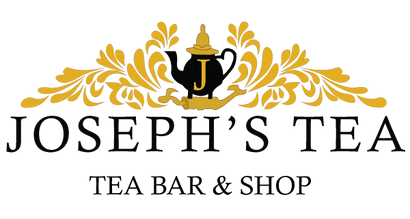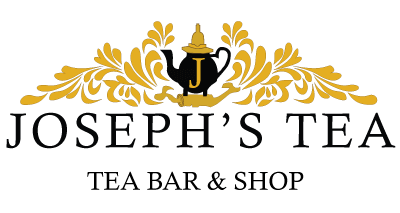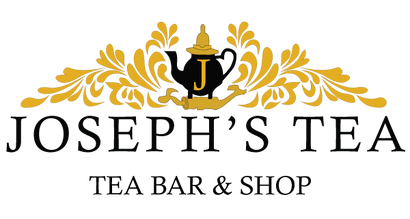Health Benefits of Tea: Green, Black, White and Herbal Tea
Tea is a name given to a lot of brews, but purists consider only green tea, black tea, white tea, oolong tea, and pu-erh tea the real thing. They are all derived from the Camellia sinensis plant, a shrub native to China and India, and contain unique antioxidants called flavonoids. The most potent of these, known as ECGC, may help against free radicals that can contribute to cancer, heart disease, and clogged arteries.
All these teas also have caffeine and theanine, which affect the brain and seem to heighten mental alertness.
The more processed the tea leaves, usually the less polyphenol content. Polyphenols include flavonoids. Oolong and black teas are oxidized or fermented, so they have lower concentrations of polyphenols than green tea; but their antioxidizing power is still high.
Here's what some studies have found about the potential health benefits of tea:
- Green tea: Made with steamed tea leaves, it has a high concentration of EGCG and has been widely studied. Green tea’s antioxidants may interfere with the growth of bladder, breast, lung, stomach, pancreatic, and colorectal cancers; prevent clogging of the arteries, burn fat, counteract oxidative stress on the brain, reduce risk of neurological disorders like Alzheimer’s and Parkinson’s diseases, reduce risk of stroke, and improve cholesterol levels.
- Black tea: Made with fermented tea leaves, black tea has the highest caffeine content and forms the basis for flavored teas like chai, along with some instant teas. Studies have shown that black tea may protect lungs from damage caused by exposure to cigarette smoke. It also may reduce the risk of stroke.
- White tea: Uncured and unfermented. One study showed that white tea has the most potent anticancer properties compared to more processed teas.
- Oolong tea: In an animal study, those given antioxidants from oolong tea were found to have lower bad cholesterol levels. One variety of oolong, Wuyi, is heavily marketed as a weight loss supplement, but science hasn’t backed the claims.
- Pu-erh tea: Made from fermented and aged leaves. Considered a black tea, its leaves are pressed into cakes. One animal study showed that animals given pu-erh had less weight gain and reduced LDL cholesterol.
Health Benefits of Tea: Herbal Teas
Made from herbs, fruits, seeds, or roots steeped in hot water, herbal teas have lower concentrations of antioxidants than green, white, black, and oolong teas. Their chemical compositions vary widely depending on the plant used.
Varieties include ginger, ginkgo biloba, ginseng, hibiscus, jasmine, rosehip, mint, rooibos (red tea), chamomile, and echinacea.
Limited research has been done on the health benefits of herbal teas, but claims that they help to shed pounds, stave off colds, and bring on restful sleep are largely unsupported.
Here are some findings:
- Chamomile tea: Its antioxidants may help prevent complications from diabetes, like loss of vision and nerve and kidney damage, and stunt the growth of cancer cells.
- Echinacea: Often touted as a way to fight the common cold, the research on echinacea has been inconclusive.
- Hibiscus: A small study found that drinking three cups of hibiscus tea daily lowered blood pressure in people with modestly elevated levels.
- Rooibos (red tea): A South African herb that is fermented. Although it has flavonoids with cancer-fighting properties, medical studies have been limited.
Health Benefits by Ingredient
Apple
- As well as being an excellent source of Vitamin C, scientists have also found that the antioxidants in apples have cancer-fighting potential.
Bergamot
Bergamot is the Italian lime which forms the base of Earl Grey.
- Bergamot has been documented as a healing fruit since the twelfth century. Its main properties are as a disinfectant and antidepressant, aiding relaxation.
- It also combats halitosis and oral infections
Chamomile
- Chamomile is renowned for being a powerful relaxant so drinking chamomile tea before going to bed is known to promote a good night's sleep.
- Chamomile is especially effective when used to treat digestive problems and to soothe allergic skin reactions.
- Those suffering from menstrual cramps are also advised to drink chamomile tea.
Eucalyptus
- Eucalpytus is known to ease coughs, broncitis and rhematism. It also temporarily relieves nasal congestion and coughs associated with a cold.
Ginger
- Ginger is excellent at stimulating the body's circulation and is therefore used in the treatment of arthritis.
- It is known to ease nausea and is therefore good for women experiencing morning sickness during pregnancy.
- Ginger also helps to prevent upset stomachs and hangovers.
Ginseng
- Ginseng is traditionally known as a stress fighter, it has also shown great promise at reducing fatigue, improving memory and fighting off colds, flu and other infections.
Lavender
Tea Palace sources the finest organic lavender flowers from Provence for the best fragrance, taste and health benefits.
- Lavender is a very special herbal tisane which is prized for its soothing and calming effects
- Lavender flowers help relieve stress, fatigue, headaches and insomnia.
- Drinking a cup of Lavender tea before going to bed is known to promote restful sleep.
- Lavender is also a digestive aid.
Lemon Balm
- Lemon balm helps to aid digestion and is known to ease pain and discomfort associated with indigestion.
- Those suffering from nervousness, anxiety and slight insomnia would also benefit from drinking teas containing lemon balm.
Lemon Grass
- Lemon grass has antibacterial and antifungal properties and is an effective diuretic.
- Drinking teas containing lemon grass is also known to have a calming effect which can relieve insomnia and stress.
Lemon Peel
- A study from the University of Arizona found that antioxidants in lemon peel help reduce the risk of skin cancer by up to 30%.
- Lemons are rich in Vitamin C which helps to fight off colds.
Mate
- Diabetes - by balancing blood sugar levels
- Constipation - by stimulating digestion
- High Cholesterol - by inhibiting the oxidation of bad cholesterol (LDL)
- Allergies, including hayfever - by reducing symptons.
Nettle
- Nettles are high in calcium, magnesium, iron , silica and potassium as well as rich in Vitamins A and C
- High iron content and high nutritional content means that nettle tea is useful in the treatment of anaemia and fatigue.
- Drinking nettle tea regularly can sooth achy joints and muscles. It is therefore beneficial for people suffering from arthritis.
- Nettle is also praised for its digestive benefits in helping to sooth bloating and digestive discomfort
Orange
- Oranges are loaded with vitamins, the most abundant being Vitamin C which helps to fight off colds and flu.
- Oranges also contain high levels of calcium which helps to protect and maintain the health of our bones and teeth.
- The Magnesium found in oranges helps to maintain blood pressure and the Potassium helps to maintain a healthy cardiovascular system.
Peppermint
- Peppermint is mostly known for aiding digestion but is also an antiseptic and has calming yet uplifting qualities.
- The menthol found in peppermint tea can also reduce nausea and is therefore recommended for travel sickness and morning sickness during pregnancy.
Raspberries and Raspberry Leaf
Raspberries and raspberry leaf have different health benefits mainly aiding women in different stages of pregnancy.
- Raspberry tea is used to alleviate the nausea of morning sickness and is especially good for strengthening the uterus during pregnancy
- Drinking raspberry tea can also improve constipation which is common during pregnancy.
- Women who experience heavy periods may also find it beneficial to drink raspberry tea.
- Raspberry leaf is commonly used by women wanting to get pregnant and in the last 3 months of a pregnancy. It tones the uterus and prepares it for childbirth. It also contains many vitamins and minerals including Vitamin C and calcium. It is, however, not recommended for consumption during the first 12 weeks of pregnancy.
Rose Buds and Rose Petals
- Rich in Vitamin C, the essential oils in Rosebuds can help to improve circulation and are good for the heart.
- Drinking rose tea is known to sooth the nerves and the emotional state of mind - it is increasingly used in treatments for conditions of stress and nervous tension.
- Teas containing roses are also known to sooth a mild sore throat.
Spearmint
- Data published in Phytotherapy Research shows that drinking two cups of spearmint tea a day for five days could reduce the level of androgens in women with hirtutism.
- Drinking spearmint tea after a meal is also known to aid digestion.
Strawberry
- Strawberries contain high levels of antioxidants and a huge range of nutrients including Vitamin C
Valerian Root
- Valerian Root helps to promote sleep and is therefore excellent for those suffering from insomnia.
- While valerian root acts as a sedative, it does not lead to the usual groggyness that people experience after taking other sedatives.
- Valerian root is also used for alleviating headaches and helping irritable bowel syndrome.
Water Temperature and Time
| Tea: | White tea | Green tea | Oolong tea | Black tea | Herbal tea |
|---|---|---|---|---|---|
| Temperature: | 200 F | 160 - 180 F | 190 F | 212 F | 212 F |
| Time: | 7 – 10 min | 3 – 4 min | 4 – 5 min | 5 min | 5 min |
Natural flavoring in tea refers to flavoring substances derived from natural sources such as fruits, spices, herbs, or other plants. These flavorings are added to enhance the taste and aroma of the tea without the use of artificial additives or chemicals. Here's how it typically works:
-
Extraction Process: Natural flavorings are extracted from their source using methods like distillation, pressing, or soaking. For example, citrus oils might be cold-pressed from peels, or vanilla extract might be derived from soaking vanilla beans in alcohol.
-
Concentration: The extracted flavors are often concentrated to create a potent liquid or powder that can be blended with tea leaves.
-
Application: These concentrated flavors are carefully applied to tea leaves to achieve the desired taste. This might involve spraying the flavoring onto the leaves or blending them with dried fruits, flowers, or spices.
Examples of natural flavorings include:
- Citrus oils (like bergamot in Earl Grey tea)
- Vanilla extract
- Mint oils or dried mint leaves
- Fruit extracts (like peach, strawberry, or mango)
- Spices (like cinnamon or cardamom)
It's important to note that while natural flavorings are derived from natural sources, they may undergo processing to isolate the desired compounds. Always check labels or ask the tea producer if you’re looking for entirely unaltered ingredients.
Organic Pu-erh
Native to China's Yunnan district, pu-erh is cultivated from the plant Camellia sinensis, which also supplies other variations of tea. What makes this tea different from others is that pu-erh is fermented like oolong tea and then goes through another process known as post-fermentation. Once the tea is fermented, leaves are sun-dried and aged in a high-humidity environment. As it is popularly said, the more aged wine is, the better it tastes. Similarly, pu-erh tea gets better the longer it is aged.


